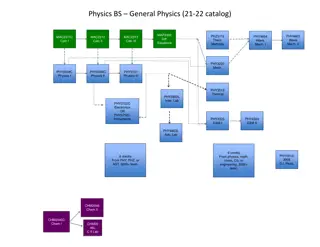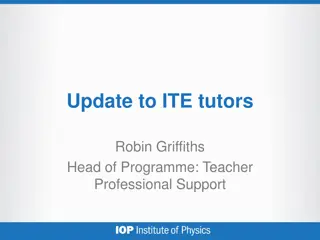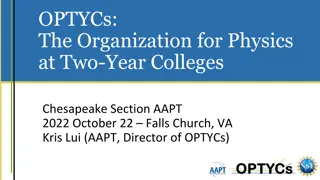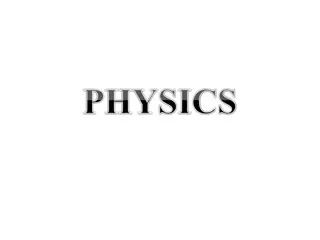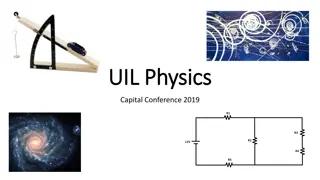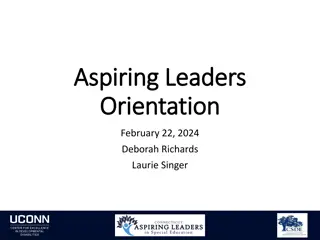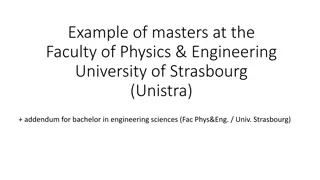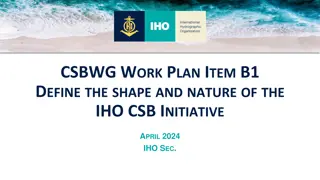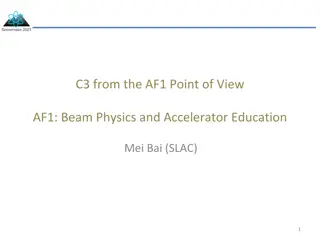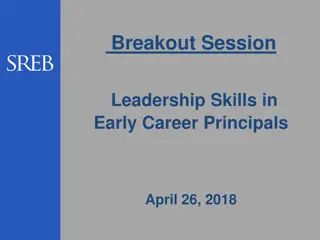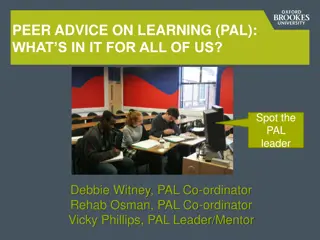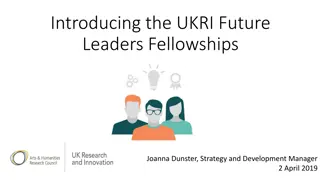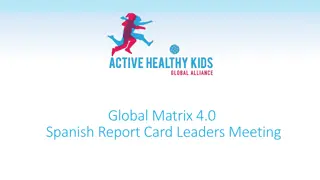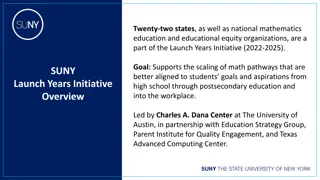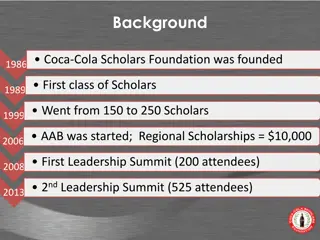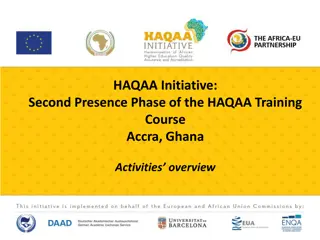Enhancing Physics Education: Future Physics Leaders Initiative
The Future Physics Leaders program, a national education project managed by the Institute of Physics, aims to support specialist physics teachers, Newly Qualified Teachers (NQTs), and non-specialist physics teachers in England. By offering professional development, matched timetabling, and mentoring support, the initiative addresses the attrition rate among physics and engineering educators, focusing on workload management and subject-specific mentoring to retain and empower teachers.
Download Presentation

Please find below an Image/Link to download the presentation.
The content on the website is provided AS IS for your information and personal use only. It may not be sold, licensed, or shared on other websites without obtaining consent from the author. Download presentation by click this link. If you encounter any issues during the download, it is possible that the publisher has removed the file from their server.
E N D
Presentation Transcript
Future Physics Leaders Paul McDonald Project Officer, Future Physics Leaders April 2018 paul.mcdonald@iop.org
What is Future Physics Leaders? National education project funded by the Department for Education (DfE) and managed by the Institute of Physics Provides a programme of professional development and support for specialist physics teachers, Newly Qualified Teachers (NQTs) and non-specialist physics teachers Available to schools in areas of England identified as a priority in need of education support Encourage more physics NQTs into these areas by asking schools to offer a matched timetable
Matched Timetabling Six out of ten newly-qualified teachers (NQTs) leave the profession within the first five years with physics and engineering NQTs more likely to leave their profession compared to other teachers. Workload has been highlighted as one of the key reasons for attrition with higher workloads particularly for NQTs. Teaching across multiple subjects increases a teacher s likelihood of leaving teaching with 50% of teachers with multiple-subject assignments estimated to leave teaching within 2.31 years, compared to 2.64 years for those with a single subject Most significant factor behind teachers leaving (Metropolitan Life study, 2006) was being assigned to classes they did not feel qualified to teach.
What is a Matched Timetable? Unmatched Timetable Focus across subjects in key stages 3 and 4 and less blocking. Monday 10 Sci (Ph) 7 Science 9 Biology Tuesday 8 Chemistry 12 Physics 11 Sci (Ch) Wednesday 11 Sci (Biol) 9 Chemistry 10 Sci (C/P) 11 Sci (Ph) Thursday 7 Science 9 Physics 8 Biology 10 Sci (Ch) 12 Physics Friday 11 Sci (B/P) 8 Physics 10 Sci (Biol) Matched Timetable Focus on subject preference and includes blocking. Monday 9(1) Physics 11 Physics 12 Physics 8(1) Biology Tuesday 8(1) Physics 9(2) Physics 10(1) Physics Wednesday 7 Science 10(2) Physics 10(3) Physics 12 Physics Thursday 11 Physics 9(3) Physics 8(2) Physics Friday 10(1) Physics 10(2) Physics 7 Science 10(3) Physics
Mentoring Support Provide personalised support to NQTs to help them make the transition into their early career Focus on subject specific mentoring to enhance physics pedagogy and continue to build upon skills developed in the training year Gives mentees an opportunity to express ideas and concerns outside of their performance management chain Involves NQTs in a network of local physics teachers and provide a valuable link with the physics community in their area
Hub & FPL Mentor Locations 1. 2. 3. 4. 5. 6. 7. 8. 9. 10. Coventry 11. Fenland/East Cambridgeshire 12. Norwich/Norfolk 13. Milton Keynes 14. Swindon 15. Reading/Bracknell Blackpool Oldham Liverpool/Wirral Warrington Kirklees Stoke Wolverhampton Nottingham Leicester
NQT Recruitment Development coaches currently working with FPL partner schools to identify employment opportunities to be filled by physics specialist NQTs. If any of your students are thinking of working in schools in these areas, please encourage them to get in touch. I. Blackpool, Oldham, Merseyside, Warrington, Stoke, Kirklees, Wolverhampton, Nottingham: daisy.fox@iop.org II. Leicester, Coventry, Fenland, Norfolk, Milton Keynes, Reading, Swindon : jessica.rowson@iop.org
Case Study First NQT recruited at Penketh High School in Warrington They going to embrace a matched timetable after the IOP shone a light on the evidence for it. This is still a 90% timetable but focus will be on matching to NQT s skillset.
Further project information Operated on a hub model, with lead school hosting termly afternoon sessions for specialist teachers of physics Half-termly twilight sessions for NQT s and teachers whose specialism isn t physics Regional days for further CPD and networking opportunities with teachers from other FPL hub locations




